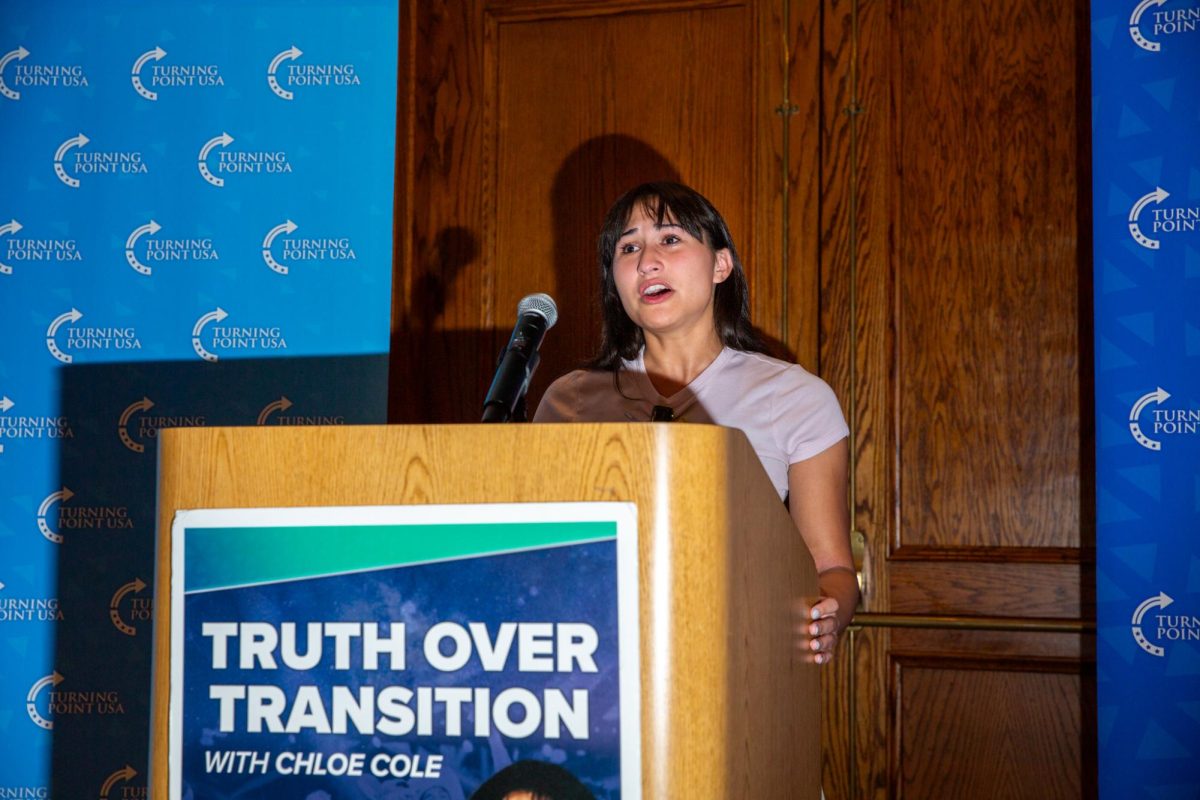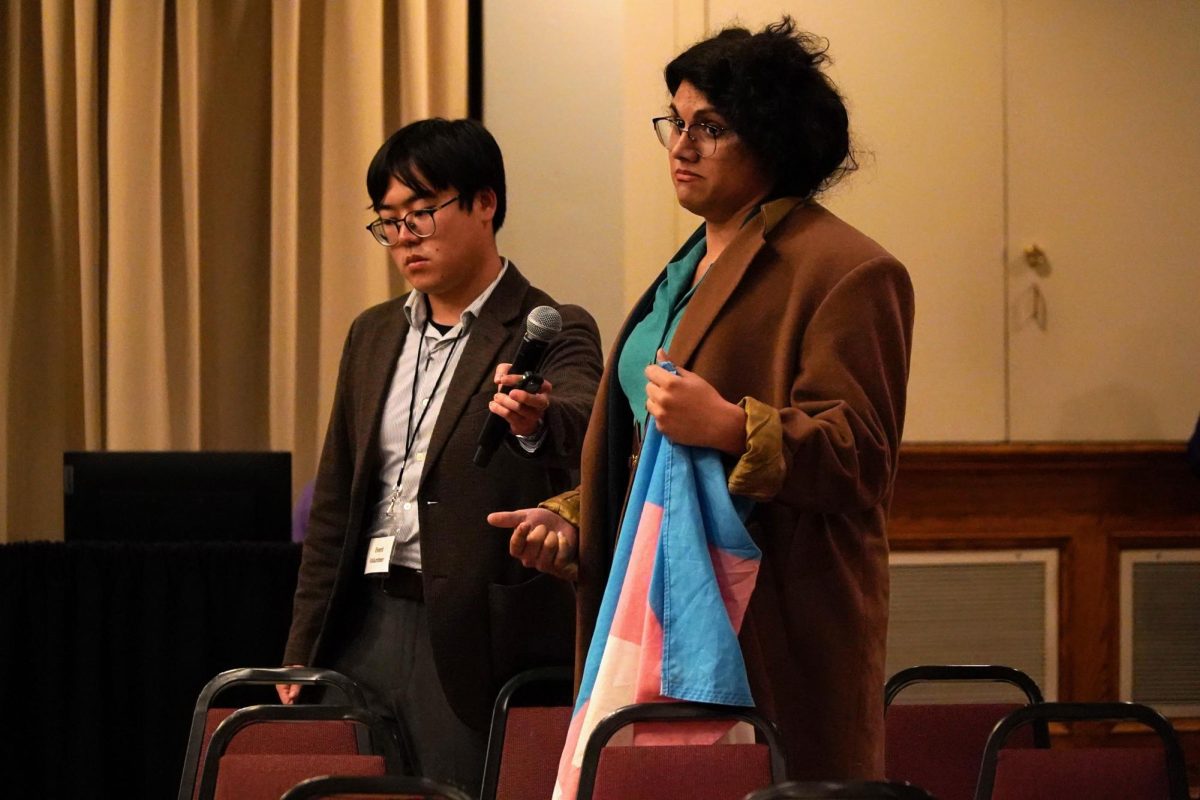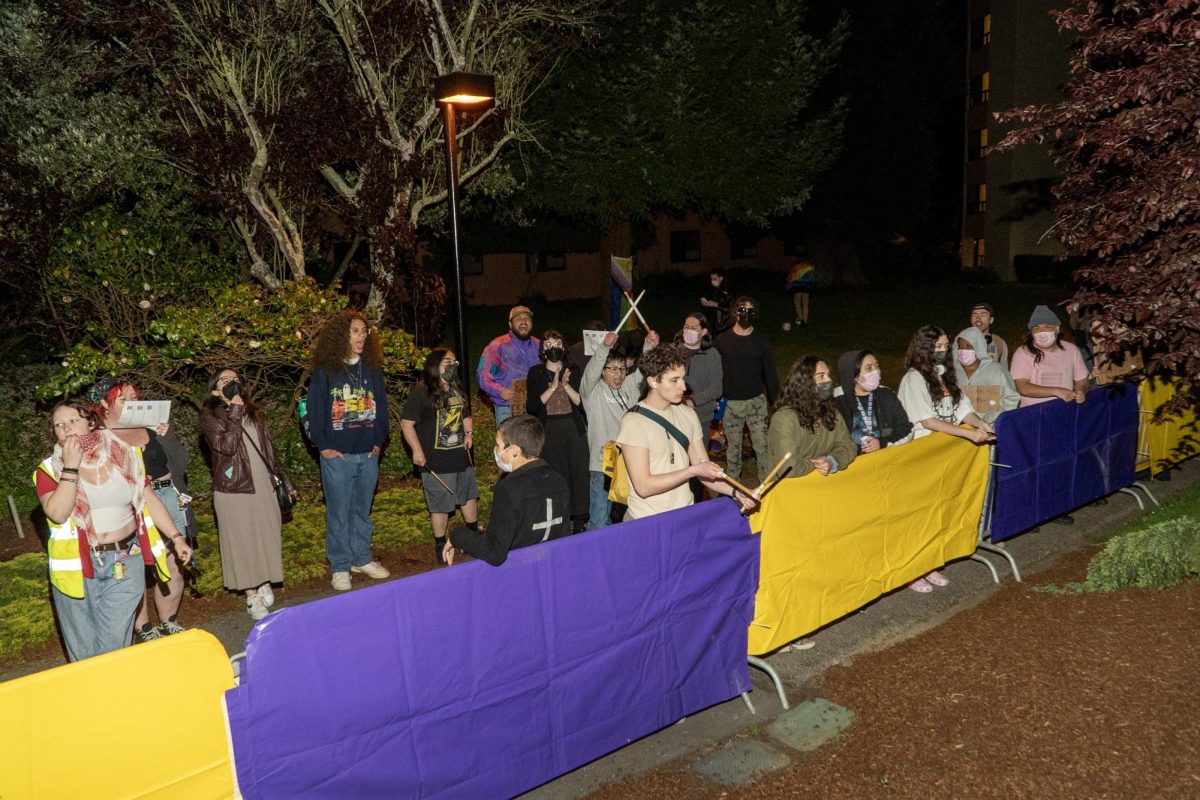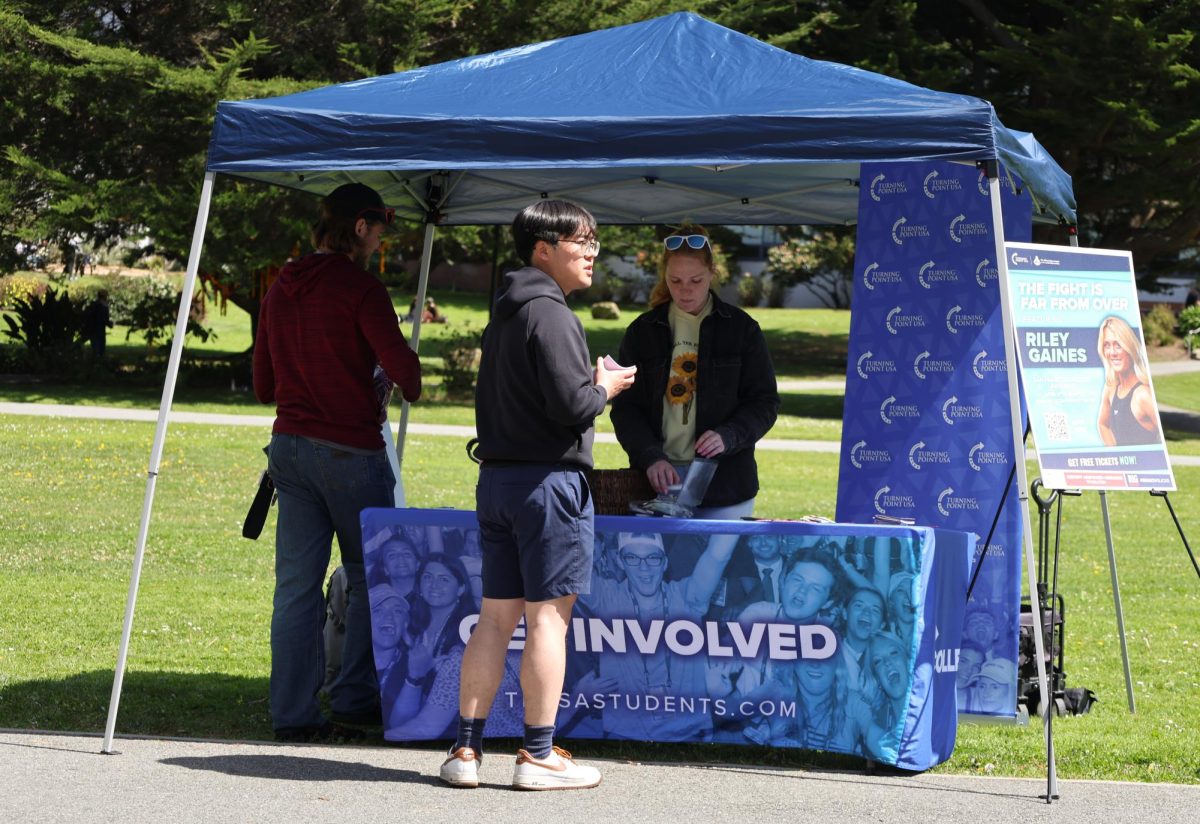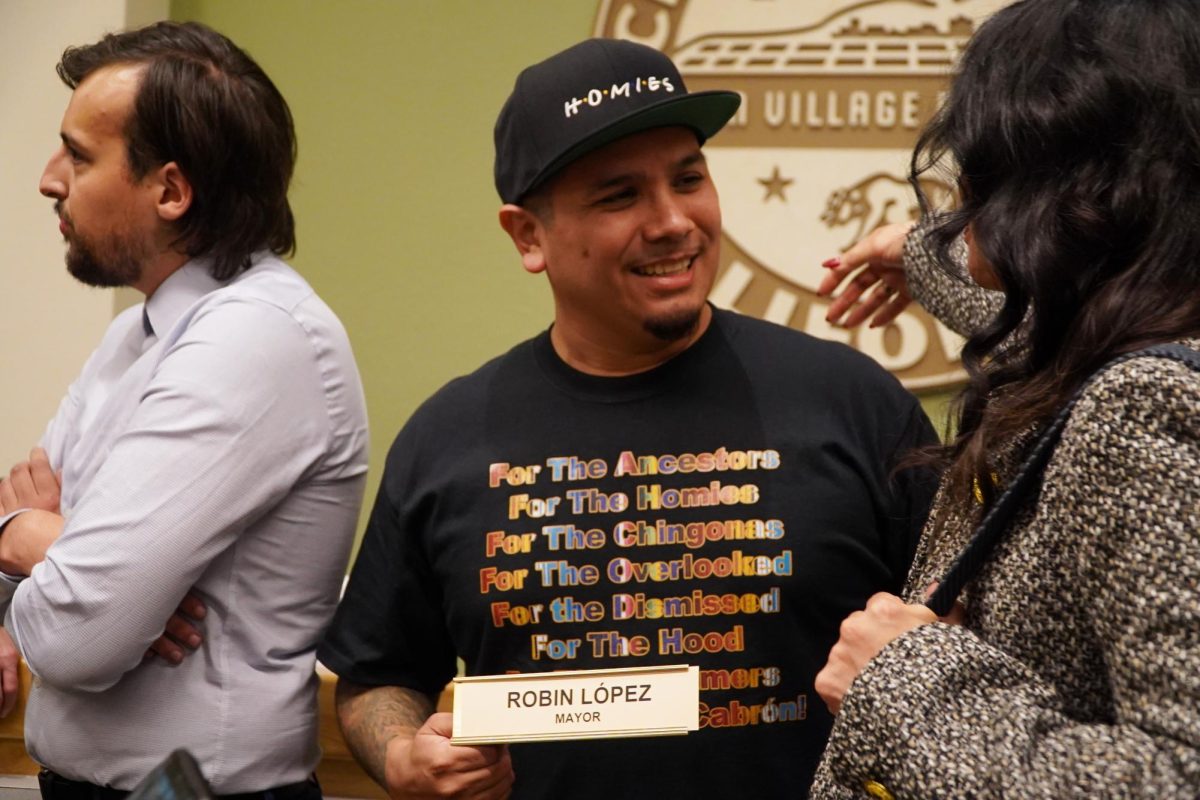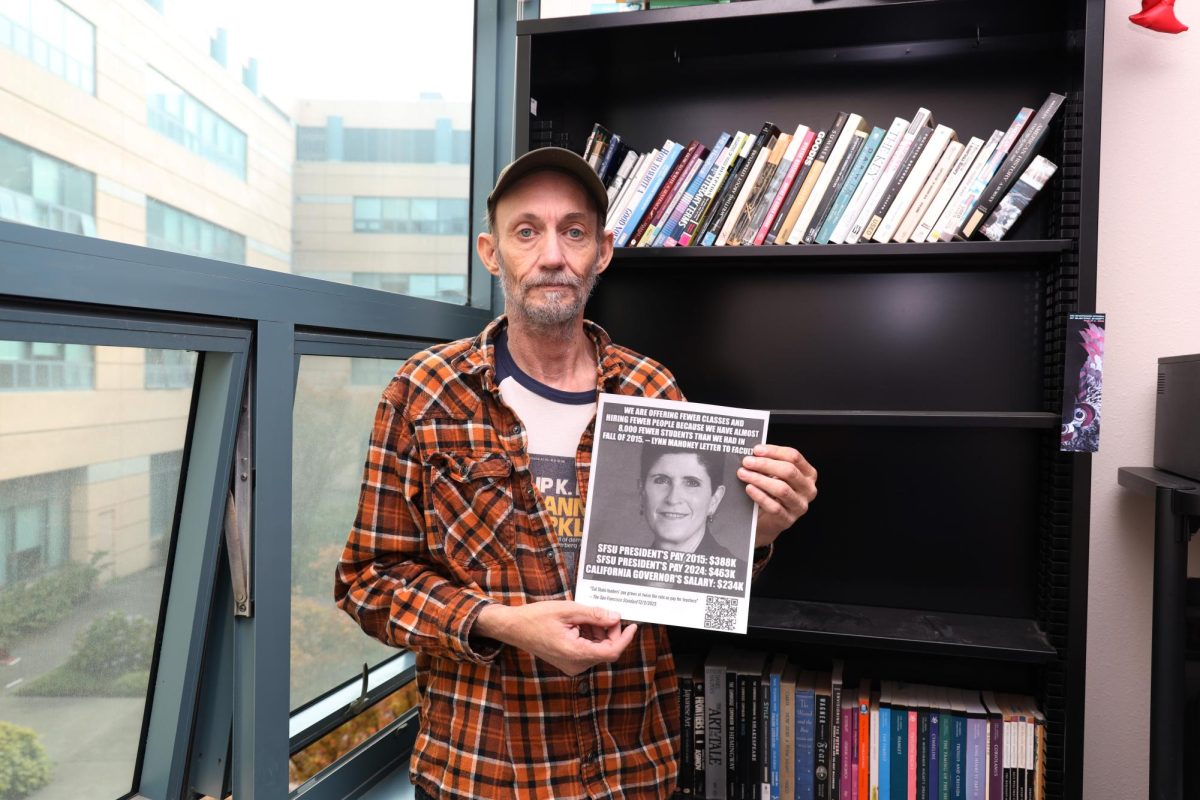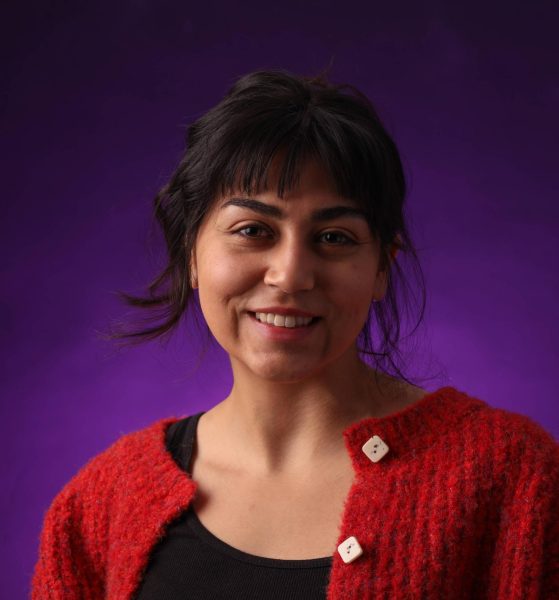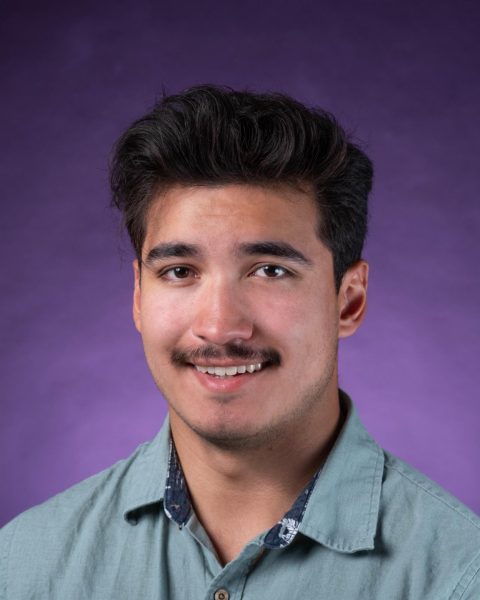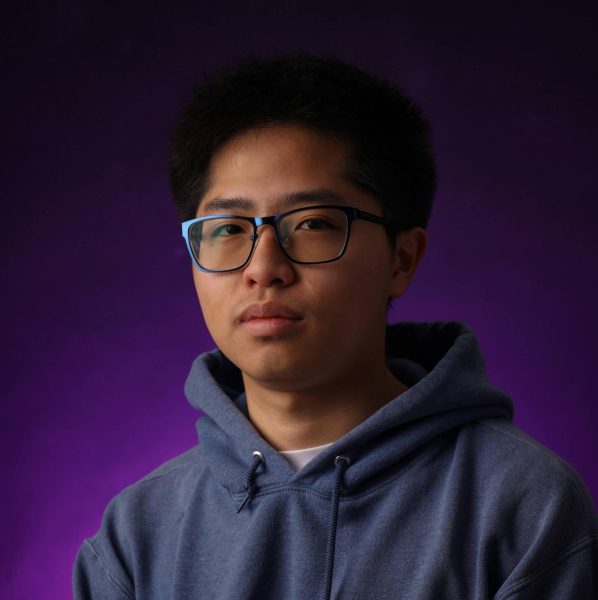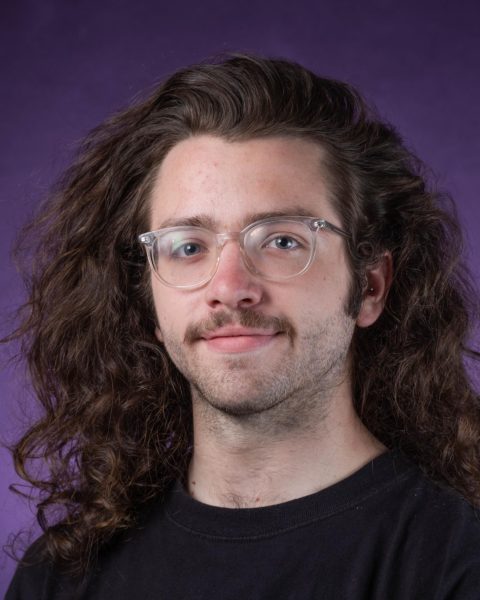On Tuesday evening, Turning Point USA held an event called “Truth over Transition” with guest speaker Chloe Cole to share her detransitioning experience.
Approximately 35 attendees were inside San Francisco State University’s Seven Hills Conference Center, most of which were not students. They sat in curiosity to listen to Cole’s personal transitioning story and why she now speaks against gender-affirming care.
“The pain that comes with gender dysphoria is a very real thing,” said Cole, a conservative activist. “It’s not easy for these people to go through. I know what it’s like but we need to acknowledge that it is frequently concurrent with other diagnoses of depression, social anxiety that commonly happen before, during, or post-transition.”
After detransitioning at 16, Cole began publicly speaking on school campuses and news outlets about her opposition to gender-affirming care, especially for minors.
During her speech at the event, Cole expressed the distress and confusion she felt when first seeking to transition at the age of 12. After having a double mastectomy and hormone treatments a few years after, she described how her body made her feel like “a sick dog, like a Frankenstein monster.”
In one emotional moment, Cole in tears said her “journey was marked by grief” over the loss of her own childhood and is part of why she strongly advocates for the “safety” of minors.
“For most young men and women like me, that is the most immediate and most difficult loss from transitioning,” she said. “It’s your childhood and childhood cannot be relived. I didn’t know this when I was a child. Ultimately, we’re all concerned about the same thing, which is the welfare of children. We all want every child to grow up healthy and happy. But we disagree fundamentally on what that looks like.”
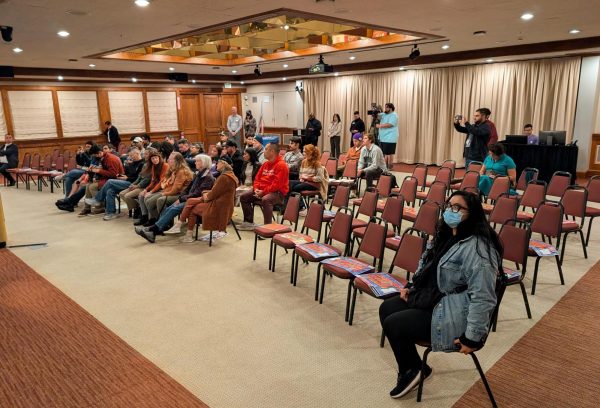
Takumi Sugawara, TPUSA SFSU chapter president, said the event marked the chapter’s first campus event since May 2023. He believes the group’s presence on campus offers a platform for discussions about diverse issues.
“I especially encourage the LGBTQ community to come here and speak with us to understand where they’re coming from,” Sugawara said. “So I really hope that people would understand that we’re doing this because we want to have a division but we want, rather, to have a unifying community. I think free speech is one of the things that we should have in common.”
This is not the first time an event has fostered similar discussions. In 2023, the organization hosted Riley Gaines, a swimmer who opposes transgender women competing in women’s sports. The event resulted in a large protest, during which Gaines claimed she was assaulted which was later investigated by UPD.
Outside of the event, approximately 40 people chanted messages such as “Trans rights are human rights” and “Protect trans kids.” The protest was organized by John L., a business major at SFSU who declined to give his full name for fear of retaliation.
During the event, John handed out papers with information as to why he decided to protest against Cole. This included claims that Cole has been paid $200,000 for her events with another organization, although Sugawara claims she was not paid for this event.
However, Sugawara mentioned that the conservative organization Leadership Institute, “are the ones that fund for [people] to come out and speak on campus.”
“I’m guessing there has been payment between the organizations and the speaker,” he said. “But I can’t confirm how much she gets paid.”
John’s intentions with the protest were to peacefully ensure that trans students at SFSU feel safe despite these events, and is motivated to support the community in part because of a trans relative.
“We were able to peacefully protest and we’re able to say that we have a voice here, that trans kids are protected on this campus, that trans people are protected everywhere,” John said.
Another protester who gave his name as Rudy B., joined the protest on a whim. Rudy declined to give his full name for fear of retaliation.
While Rudy was not aware of the protest prior to the event, he hopes that protests like these catch on with students.
“I think they’re just doing stuff to try to make noise and not really, actually actively engage with the person they’re protesting, not physically, but you know, verbally,” Rudy said. “I think that hopefully this catches on so next time they come to our school, it’s a little bigger of a turnout.”
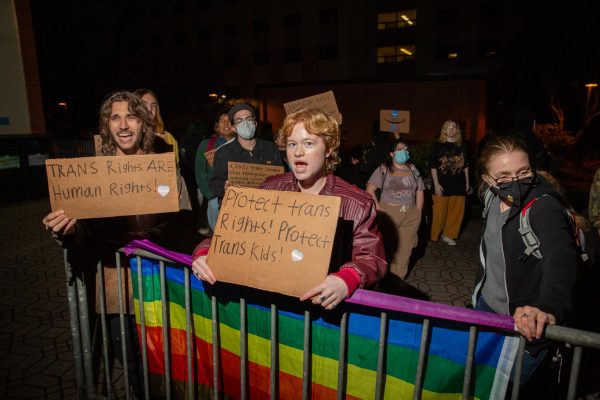
Those disagreements are also what brought students to fill out the required RSVP form to enter the event. Although SFSU graduate student Alexi Atteberry said he doesn’t align with either side, his attendance allowed him to hear different perspectives.
“I respect the free speech of both sides of any political debate,” he said. “I came here because I disagreed with many of the points that the speaker was making and many of the points that the crowd was endorsing. I wouldn’t say that anything I heard was unexpected and I also wouldn’t say that my mind was tipped towards a change that I had previously considered.”
Despite Cole’s speech being met with a standing ovation and applause, an open Q&A brought civil discussions that ruffled the feathers of some in the room.
Shane Zaldivar, a transgender woman who attended the event, asked Cole about what she thought about transgender individuals who didn’t resonate with her unhappiness after transitioning. In response, Cole said that happiness is not a determining factor for success.
“We shouldn’t be basing transgender success on happiness,” Cole said. “If this is a medical intervention that we are administering to people, we should be looking at the overall quality of their life, their physical and psychological health.”
Given more time to discuss, Zaldivar was interrupted by attendee Amanda Peters who attempted to start a debate about the existence of transgender rights and their availability.
“What rights are at stake, though,” Peters said. “Give me one specific right? You sound like you’re having some heterophobia — unfounded fears.”
The interference was quickly shot down by TPUSA facilitators who allowed Zaldivar, who is also the manager of training and education for the office of Transgender Initiatives with the city of San Francisco, to finish her thoughts and stopped any further attempts of debate between attendees.
Before making an exit from the venue, under protection of police and staff, Cole made a final statement about her opposition towards transitioning.
“You cannot change someone’s legal autonomy over their body and their choices but I have a responsibility,” Cole said. “Everybody has a responsibility to tell people, whether it’s for children, that they are wonderfully made the way that they are. They cannot change this about themselves because there is no such thing as a successful transition because you cannot actually change sex.”
After the event, Zaldivar stayed outside to speak with the protesters. While she supports the actions of the protesters, she explained to them that she attended the event in order to encourage dialogue and educate the attendees as to the perspectives of a trans woman.
“If I’m gonna die tomorrow, and being trans, and that expression of self and authenticity, identity, whatever makes me happy,” Zaldivar said. “Why is it your problem?”
This story has been updated for accuracy. A previous version of this story attributed Cole’s response to Zaldivar’s question to Zaldivar.






